muslim-300x200.jpg" alt="Muslims pray during the Eid al-Fitr celebration in Manila, the Philippines. Photo: Xinhua" width="300" height="200" /> Muslims pray during the Eid al-Fitr celebration in Manila, the Philippines. Photo: Xinhua
Islamic education is the process and system of learning based on tauheed (oneness of Allah). This process operates and has been developed with the emergence of postmodernism in the Philippine secular state.
The Muslim Filipino citizens, in particular, have to observe the Philippine laws and guidelines on education which is secular in nature and has been considered as an offshoot of Western culture that the modern viewpoint of the world has arisen. They are given the Autonomous Region in Muslim Mindanao (ARMM) with some degree of “Islamic education.” The enactment of laws and orders intended for the improvement of their education manifests the “unsecularization” in Philippine educational system for the Muslim Filipinos.
The development of both the Islamic education and postmodernism is a fact that immediately comes to our attention. Their influence in Philippine educational system after 1968 may be considered phenomenon which is subject to further inquiry.
Thus, this paper is designed to present, discuss and analyze the Islamic education and the postmodernism in the Philippines. Specifically, it discusses: the Philippines as a secular state, the nature of Islamic education and postmodernism and the state of Islamic education with the emergence of postmodernism in the country.
Also Read: The Forty-Four-Days of Glory: Azerbaijan’s Struggle for Justice and Peace
Philippine as Secular State
Secularism is the separation of a government, institution or organization from religion and or religious beliefs. In one sense, secularism may declare the right to be liberated from religious rule and teachings, and the right to freedom from governmental imposition of religion upon the people within a state that is impartial on matters of belief.
Thus, secularism makes Philippines as a secular state. It separates religion from the State affairs. It treats all its citizens equal regardless of their religious affiliation. It also influences to have centralized educational system. Its vital programs on education has been organized at the national level in order to execute the policy of “national integration” as a way to develop the sense of Filipino nationhood and finally to make the country reaches to the level of “nation-state.”
The separation of the religious and political institutions is provided in the Constitution as presented:
Also Read: Palestine Solidarity Month: A Collective Movement for Al-Aqsa and Palestine’s Freedom
- “Separation of the Church and State is inviolable.”( Constitution, Art 2, Sec. 6)
- “No law shall be made respecting an establishment of religion or prohibiting the free exercise thereof.”(Ibid., Art. 3, Section 5);
- “No public money or property shall be appropriated, applied, paid, or employed, directly or indirectly, for the use, benefit, or support of any church, denomination sectarian institution, system of religion, or of any priest, preacher, ministers, or other religious teacher, or dignitary as such, except when such priest, preacher, minister, or dignitary is assigned to the Armed Forces, or to any penal institution, or government orphanage..” (Ibid., Art 6, Sec 29(2).
It appears that this separation was designed merely to establish the boundaries between the two institutions. The State prohibits from interfering directly or indirectly in purely religious matters whereas the Church is barred from meddling or taking part in purely temporal affairs of the State. (Cruz, 1991:169-170). This does not imply the defiance of the importance of religion in the national life. It implies the recognition and the preservation of people’s customs, traditions and beliefs.
In the Philippines, secularism is quite significant to the Muslim Minority, the Muslim Filipinos. They are now free to exercise and observe their own religion without the interference of the State. In the school, it is against its laws to impose a particular religious faith and practices to any citizen or to compel or force a person to go away from his religion against his will. This development is also recognized in Islam. In the English translation, Allah Subhana Wata’ala says: “no compulsion of religion.”
State of Islamic Education with the Emergence of Postmodernism
Islam and postmodernism influence the development of Islamic education in Philippine secular State. In the process, the government centralized-secularized educational system intervenes considering the existing realities in the country. Being a democratic country, it recognizes the freedom of expression and thought and the customs, tradition and belief of the Muslim Filipinos and the cultural communities in the formulation of state policies as provided in its constitution.
Also Read: Hassan al-Turabi: A Controversial Thinker from Sudan
In the country, Islam came first before the onset of modernism and postmodernism. It came through da’wah (Islamic call) by Muslim traders and missionaries. Its educational system is mounting based on tawheed (oneness of Allah) which is basically regulated by the Shariah, the totality of the commandment of Allah, as enshrined in the Qur’an and Sunnah (tradition of the Prophet).
Postmodernists subjective response to particular issue may attract differences of outlook among people. To some extend, people are divided according to their family, tribe, or group. They used to advocate their own identity, right and belief in different approaches. Muslim Filipinos in particular are having different modes and thoughts in their struggle for self determination. To address this, the government has instituted the policy of “national integration.”
Both systems are common to the so called “unsecularization” and the revival, renewal and strengthening of religious faith of the Muslims. But, Islam is distinct since its reaction and principles are based on Islamic belief for the Muslim Ummah in general regardless of their color, race, tribe and nationality as it is guided by the Shariah, a divine law that must be obeyed by the Muslims. Diverse interpretation among Muslim scholars of the sources of Shariah (i.e., Qur’an and Hadith) is dynamic and forceful. They are treated as the human understanding of Shariah. Such understanding is progressive in time and place.
As mentioned earlier that Islamic education is based on tawheed (oneness of Allah) and its aim is to make a God fearing persons. In the country, the school curriculum is secular in nature and its aim is to make a secular man and committed to the constitution. It is an observable fact that the mode of teaching of both is more academic to include the dynamic understanding and the intellectual discourse of the different religious beliefs. Outside the schools, people are actually free to exercise, propagate and enjoy their own religions.
Also Read: Who Exactly is the RSF Group Shaking Sudan?
The government centralized-secularized educational system is explained by the fact that its Department of Education, Culture and Sports and the Commission on Higher Education of ARMM are in charge of the two levels of education: primary, elementary and secondary education and Higher Education, respectively. The overall content of the material that is being taught, the point of view of the subject matter and, in the final analysis, the values that are inculcated through the learning experiences has been provided by the system. Therefore, the DECS-ARMM follows the dictates of the DECS national.
In the country, the basic purpose of education is to prepare students to become good Filipino citizens committed to uphold the Constitution, the rights and duties of citizenship, patriotism and nationalism. However, the Philippine educational system is anchored to the secular principle of the state as enshrined in the 1987 Constitution. (Ali, 2011: 2)
In effect, the kind of education for Muslim Filipinos is inadequate and not responsive to their socio-economic, political and religious needs. Graduates of Islamic studies from recognized schools could not proficiently use the Arabic language, much less understand it, and that their training in these educational centers hardly benefited them in practical ways. They could not make use of their training to becoming ulama themselves like those graduates from the educational centers in the Muslim countries.
These are among the reasons why government continue to receive adverse reaction and unfavorable attitude from concerned individuals and organizations towards the country’s secularized educational system.
Also Read: The Two-State Solution (Palestine–Israel) in Historical Perspective
Among the factors of the Muslim educational development are da’wah, political participation and armed struggle in the country. These are the so called ‘tri-hijratic’ approaches being employed by the Muslim Filipinos in their struggle for an Islamic society. Da’wah refers to the Islamic call or the propagation of Islam. The duwat or the propagators wish to transmit Islam in different approaches in both formal and informal institutions in the country. They wish Muslims to return to and start living from the basic tenets of Islam. To the ulama and Muslim intellectuals, they explain the Islamic tenets and thoughts in different channels and venues.
Political participation refers to the “indirect and direct” involvement in the government affairs. This indirect participation is being done by the Muslims occupying a non-elective positions and the direct participation is being observed by those handling an elective positions. Among them have shown their unique role as Muslims with the system. Among their political leaders have likened the system to a house that its gate is politics and the mode is political involvement in the electoral process. After winning the election, they have to display and execute the qualities and principles of leadership they believe.
Armed struggle has been done through fighting and peace negotiation. This has been observed by the “mujahideen” with the help shared by the Muslim community in order to have self-governance or establish an Islamic political authority. After all, such authority may be used as an agent for peaceful, stable and prosperous society.
The increasing number of educated and conscious Muslim Filipinos and their attendance to the Islamic seminars and conferences, Islamic awakening and consciousness has taken place. They are now in the process of learning and teaching in reconstructing human knowledge and thought from Islamic perspective in order to have a wide range of Islamic knowledge, thought and sciences.
Also Read: Enchanted by K-Dramas, Dragged into Slander: Time for Muslims to Rise!
Because of the emergence of postmodernism as shown by the number of intellectuals and activists reacting to the evolution of social ills of materialism and secularism and the continuing da’wah or Islamic call, armed struggle for self determination and political participation of the Muslim leaders in the country, concerned Muslim individuals and organizations asked government authorities to give just recognition to the customs, traditions and beliefs of the Muslim Filipinos and the cultural communities through educational process. Therefore, the government came out with the educational programs through the enactment of laws and the issuance of letter of instructions and orders, to wit:
- Letter of Instruction 71-A was issued by former President Ferdinand E. Marcos on April 28,1973 allowing the use of Arabic as medium of instruction and its teaching in areas predominantly populated by Muslims.
- Department Orders no. 25 series of 1980 provides Arabic as a learning area in the curriculum of both public elementary and high schools in regions 9 and 12 in Mindanao.
- LOI 1221 was also issued by Pres. Marcos on March 31,1982 for the development of the madrasah system and to strengthen the teaching of Arabic language which was considered vital to the educational program in Mindanao.
- MECS Order No. 24, series of 1982 was issued by the then Ministry of Education, Culture and Sports which includes the formulation of Guidelines and Standards for the Recognition and Operation of madaris.
- Education Act of 1982 or Batas Pambansa 232 was enacted and states: “The State shall promote the right of the national cultural communities in the exercise of their right to develop themselves within the context of their cultures, customs, traditions, interest, beliefs and recognizes education as an instrument for their maximum participation in national development and in ensuring their involvement in achieving national unity.”
In the country today, three modes of Islamic teachings:
- Teaching of Islam in Madrasah,
- Teaching of Islam as a subjects in some private and public schools.
- Teaching of Islam as a degree program in higher educational institutions (i.eUniversity of the Philippines, Mindanao State University, University of Southern Mindanao, Jamiatu Muslim Mindanao, Jamiatul Philippine Al-Islamia, Lake Lanao College, etc.). (L/Imt/R04)
Mi’raj Islamic News Agency (MINA)
Also Read: Creating Opportunity and Avoiding Misery; Lesson Learn on Waste Recycling Issue





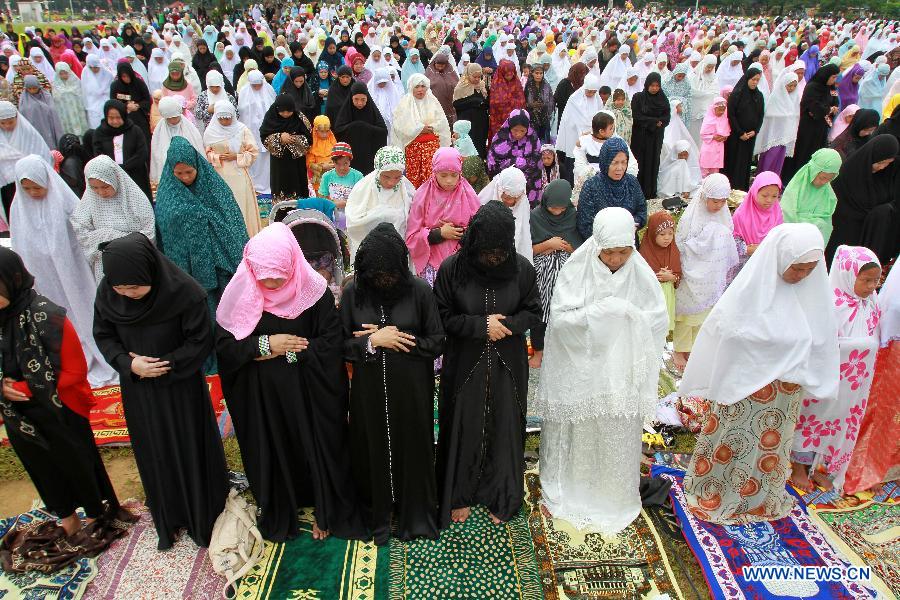




![Israeli tanks and APC’s gather by the Israeli – Lebanese border. Amid Israel’s escalating campaign against Hezbollah in Lebanon on September 30, 2024. [Erik Marmor/Getty Images]](https://en.minanews.net/wp-content/uploads/2024/10/IMG_20241001_203226-300x197.jpg)




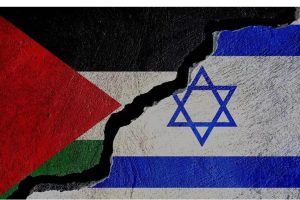

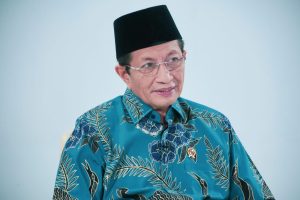

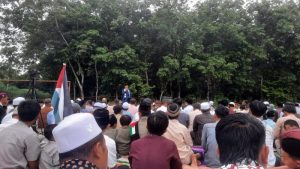
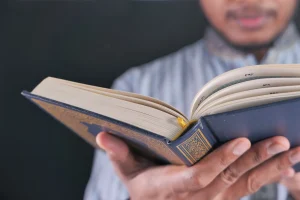












 Mina Indonesia
Mina Indonesia Mina Arabic
Mina Arabic